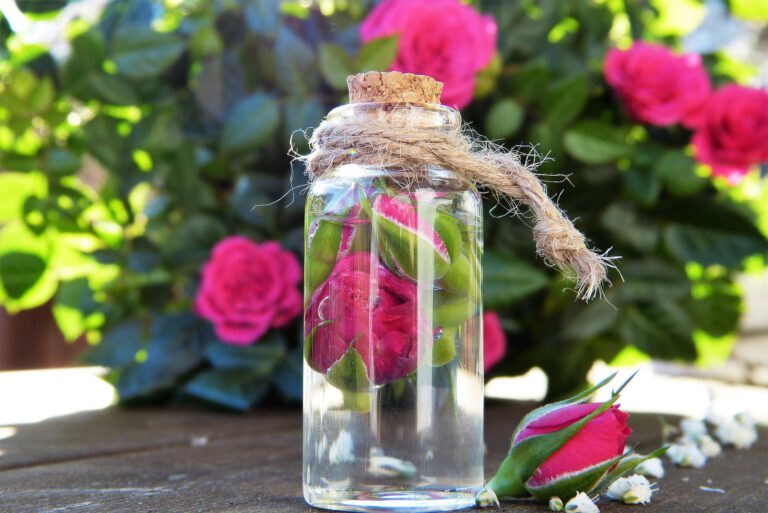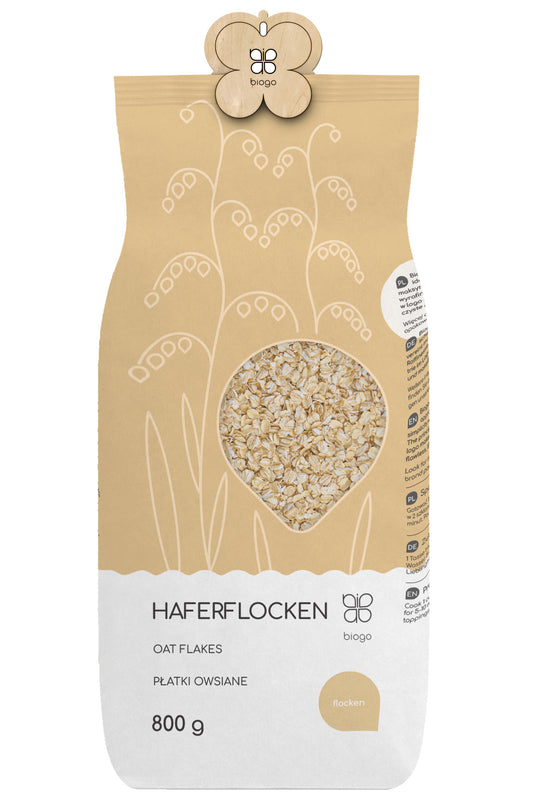Contents
- What exactly are hydrolates?
- The most important properties of hydrolates
- How do you choose the right hydrosol?
- Hydrolates for dry skin
- Hydrolates for oily and combination skin
Everyone has heard of cosmetic milk products, tonics, and micellar water. However, hydrolats—pure plant essences of natural origin—have become something of a novelty. The name is actually relatively new, as hydrolats, or floral waters, were once used by our grandmothers. Nowadays, hydrolats are enjoying a resurgence in popularity due to their many valuable skincare properties and are becoming increasingly popular among people who appreciate natural cosmetics. So let's take a look at the properties of each floral water, how to use them, and how to choose the right hydrolat for your skin type.
What exactly are hydrolates?
Hydrolates are a raw material obtained from leaves or flowers through steam distillation. The resulting water is the hydrolate, which contains active ingredients and small amounts of essential oil. Hydrolates are becoming increasingly popular due to their diverse care properties and diverse applications.
The most important properties of hydrolates
Hydrolats can be used safely in daily skin, body, and hair care. Because their action is very gentle, hydrolats do not cause irritation unless we are allergic to a particular plant. Depending on the plant from which the hydrolat was obtained, it can have different properties. However, the basic function of different types of hydrolats, which they all have in common, is to restore the skin's correct pH. The correct pH of the skin helps protect it from the harmful effects of external factors. Hydrolats have a cleansing and refreshing effect on our skin. They can also have the following properties:
- moisturizing,
- anti-inflammatory,
- Antioxidant,
- Anti-wrinkle ,
- regenerating,
- anti-edematous
- mitigating,
- softening and smoothing,
- Regulation of sebum secretion.
How do you choose the right hydrosol?
Since natural hydrosols are gentle on our skin, we can choose a product that, for example, suits us in terms of scent. The simplest classification is hydrosols for dry skin and hydrosols for oily or combination skin.
Hydrolates for dry skin
Dry skin can feel rough and tight. It may become red, flaky, itchy, and burn. This skin type requires a sealing of the epidermal barrier and thus a soothing effect. Hydrosols are effective for dry skin:
- Rose – moisturizing, with a fresh scent,
- Raspberry – rich in valuable fruit acids and vitamins,
- from verbena – ideal even for demanding atopic skin,
- Linden – for soft skin, with a pleasant scent.
Hydrolates for oily and combination skin
The most characteristic features of oily skin are a rather thick epidermis with visible blackheads and an unsightly shine. When caring for this skin type, it's worth choosing hydrosols that provide intensive moisturizing effects, but also regulate the function of the sebaceous glands and inhibit sebum production. Such measures include, for example:
- Hydrosol Hamamelis – delicate, with antioxidant properties,
- Cistus rose hydrolate – with cleansing properties .
In fact, hydrolates can be used interchangeably, without being tied to any one of them. Floral waters with universal benefits include lavender hydrolate, for example, and verbena. Hydrolates are easy to apply, require no washing, and refresh the skin very gently, providing a refreshing, soothing, and toning effect.
THE PUBLISHER'S CHOICE
Dried dates 1 kg BIOGO
- €4,21
€4,95- €4,21
- Unit price
- / per
Peeled sunflower seeds 1 kg BIOGO
- €3,04
€3,57- €3,04
- Unit price
- / per
Dried organic mango 400 g BIOGO
- €10,99
- €10,99
- Unit price
- / per
Dried White Mulberries 500 g ORGANIC
- €5,84
€6,87- €5,84
- Unit price
- / per
Organic Ground Turmeric 500 g BIOGO
- €5,92
- €5,92
- Unit price
- / per
Oat flakes 800 g BIOGO
- €2,34
€2,76- €2,34
- Unit price
- / per
Milk thistle seeds 1 kg BIOGO
- €3,99
- €3,99
- Unit price
- / per
Popcorn (corn kernels) organic 1 kg BIOGO
- €5,84
- €5,84
- Unit price
- / per
Organic cashew nuts 1 kg BIOGO
- €19,99
- €19,99
- Unit price
- / per
Unpeeled buckwheat groats 1 kg BIOGO
- €2,81
€3,31- €2,81
- Unit price
- / per







































































































































